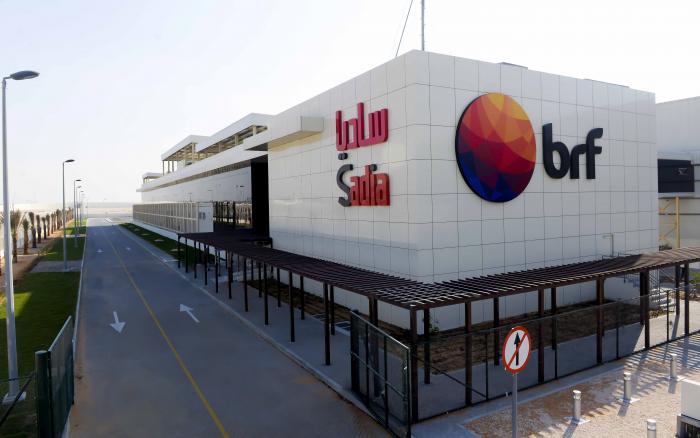São Paulo – Mammoth Brazilian animal protein company BRF announced last Friday (8) the purchase of a plant from the Joody Al Sharqiya Food Production Factory in Dammam, na Saudi Arabia, in a USD 8 million deal, for processing breaded and marinated cuts and hamburgers.
CEO Lorival Luz discussed the subject in the Agro 360 show, on TV channel Terra Viva last Monday, alongside agribusiness industry specialists and Arab Brazilian Chamber of Commerce president Rubens Hannun.
BRF is planning a fivefold increase in the plant’s annual output capacity, from the current 3,600 tons to 18,000. thereby broadening its foothold in the Saudi market.
The buyout does not impact the memorandum of understanding entered into late last year with the Saudi General Investment Authority (SAGIA), which provides for USD 120 million in investment, plus BRL 700 million at the current exchange rate, in building a food processing plant in the Gulf country. This project is currently in a technical specifications and financial modeling phase, a press release said, with completion due by 2022.
The buyout is “Subject to observance of preexisting conditions applicable to deals of this nature, including approval from regulators,” the BRF press release read.
In the Agro 360 show, Lorival Luz said the Arab market is a priority. “We are deply committed to our relations with Arab countries. We already own a manufacturing unit in Kizad, Abu Dhabi [the Khalifa Industrial Zone in the emirate’s port] which puts out processed foodstuffs, burgers, and these products sell across the whole region. We are the only [Brazilian] food company producing food in the Arab countries. This attests to how solid our relations are, and we want to go further,” he said. Pictured at the top of this page is the UAE facility.

Luz said the plant was purchased because the lead-up to construction of the new plant is protracted. He expects the facility to go online in 2022. “So we fast-tracked the process. We are aware that we must follow all procedures for our plants and their accreditations, but we are 100% committed to the Arab countries and Saudi Arabia, and we have demonstrated thus effectively, not only through these investments, but also by our being present there. I myself have traveled to that part of the world more than four times last year, and now this plant further demonstrates our intention of being present with Brazilian investment in Saudi and Emirate soil, to demonstrate the presence of Brazil and BRF in that region,” he said. The recently acquired plant should be operational by the end of this year or in early 2021, according to him.
Regarding the USD 120 million investment announced last year, Luz said coronavirus and its restrictions on movement ultimately compromises project rollout. “We have made strides with backing from SAGIA, which is supporting us and with which we entered into the agreement. The investment was announced during the FII [Future Investment Initiative, aka “Davos in the Desert”], whose purpose is to produce food locally. The investment will be coupled with the local distribution that we already have in place,” he said. According to him, the project is moving forward in spite of the pandemic, albeit at a slower pace.
The executive said BRF’s ties with Arab countries date back to the 1970s. “By now we have an entire local distribution network, with personnel, a staff, with our Sadia brand, and now with an investment in food production in Saudi territory,” he argued.
BRF netted BRL 9 billion in Q1 this year, up over 60% from Q1 2019, according to Luz. “We had solid growth in revenue, which attests to the work we did this last year, with an emphasis on efficient operation and logistics, on serving our consumers, providing quality food,” he said.
The company ships out some 180,000 tons of poultry and food items a year to Saudi Arabia alone. “We are their biggest supplier and we are committed to consistency, to ensuring that country’s food security and sustaining our long-term relations,” he said.
Translated by Gabriel Pomerancblum




